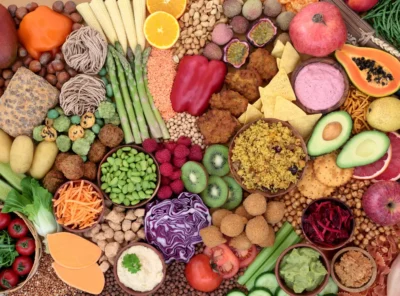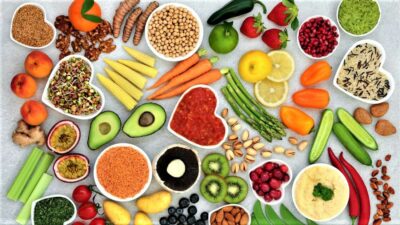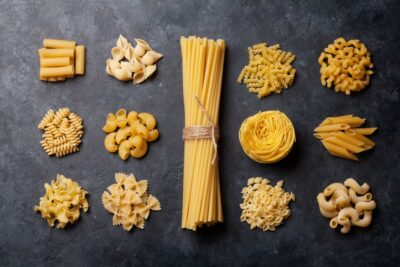There are huge ecological, ethical, and public health costs when we farm animals for their meat, milk, and eggs. Millions of people have decided they no longer want to be part of such a damaging and destructive system, and they become vegan. Here, we explain more about what it means to be vegan and give some practical tips for anyone wishing to move more towards a plant-based diet and lifestyle.
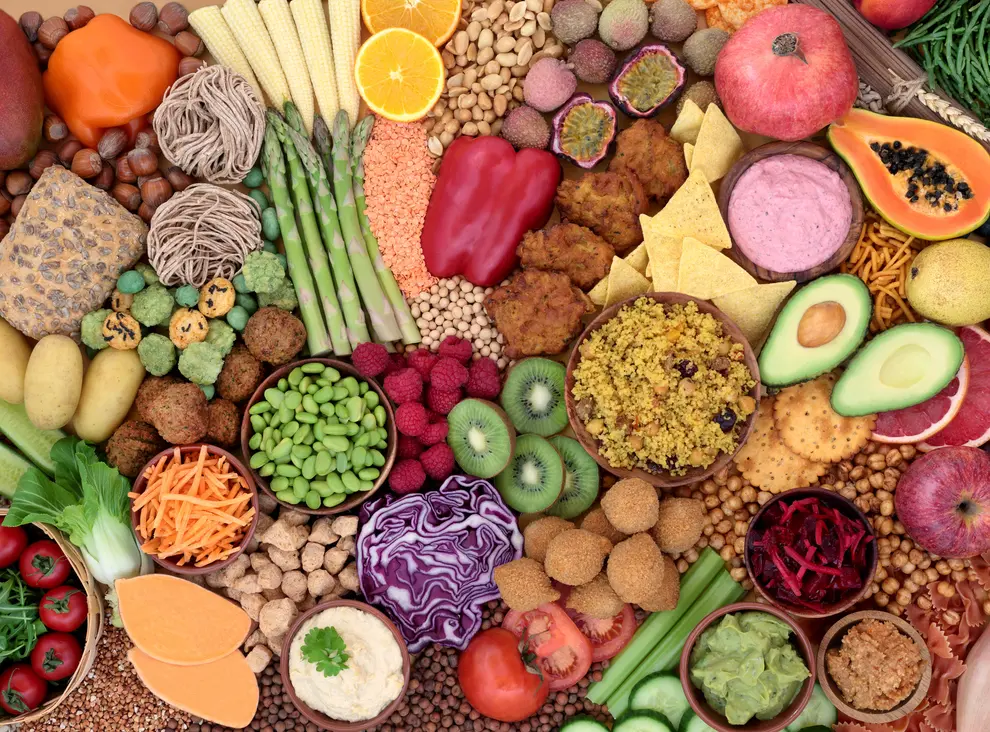
What Is the Vegan Lifestyle?
A vegan lifestyle means living as far as is practical and possible without exploiting or funding the exploitation of animals. The obvious starting point for this is what we eat, but it also pertains to the clothes we wear, the products we buy, and how we entertain ourselves. At its heart is compassion and a sense of justice. It’s about caring for others as well as caring for ourselves.
Acting on Our Principles
Most people say they are animal lovers; most hate factory farms; and most would never deliberately cause harm to an animal. And yet, most people still eat products that cause severe suffering and death to our animal friends. How do we explain this? It’s clear we have been conditioned not to think too closely about what eating animals means for the animals themselves, and yet many of us have a deep unease at this contradiction. When we stop eating and using animals, there is a huge sense of relief: we are finally living according to our principles.
Being a True Animal Lover
If we adore the cat with whom we share a bed or the dog we like to snuggle up with on the sofa, then we would probably love a pig or a chicken or a cow if only we had gotten to know them, too. Too often we compartmentalise animals as ‘for loving’ or ‘for eating’ but there is no reason for this arbitrary divide. In reality, all animals have the same worth. And if we could not eat an animal we have come to know, we can show consistency in our compassion by not eating other animals.
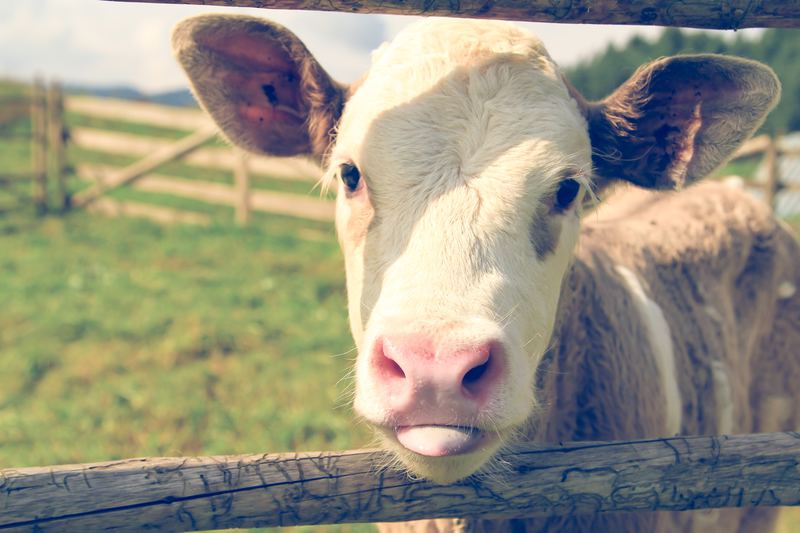
Lowering Our Environmental Impact
The animal agriculture industry — the industry that turns animals into meat and takes from them their milk and eggs — is a leading driver of climate breakdown, deforestation, wild animal loss, and water pollution. When we switch to a plant-based diet, we significantly reduce these impacts, and contribute to a healthier, safer, more vibrant planet for all.
Adopting the Principle of “Do No Harm”
When we think about others and take steps to protect them, we honour the principle of ahimsa or ‘do no harm’. And that is a beautiful way to live. Just imagine if that principle guided the whole of humanity! We can be the change we want to see in the world by ensuring our choices do not cost others their wellbeing, their happiness, or their lives.
Holding All Lives As Sacred
Life is so precious, and animals’ lives mean as much to them as ours do to us. If you can bear to watch slaughterhouse footage, you’ll see that they do not walk gently towards the knife; they fight for their lives. And it’s not just life itself that they deserve; it has to be a life worth living. So when we withdraw our support from the cruelty of the factory farming system, and refuse to financially support the slaughter trade, we are holding all lives as sacred. And that brings an incredible sense of community and connectedness with the other beings on this planet.
How To Live a Vegan Lifestyle?
If the reasons for becoming vegan have resonated with you, it’s time to get down to the practical issues. How do we actually go about becoming vegan?
Start Researching
Whatever questions you have about becoming vegan, type them into a search engine. If you want some ideas for breakfast, how to be vegan if you are intolerant to gluten, how to feed a family on a vegan diet, or where you will get specific nutrients, all that information is readily available online. So, whatever concerns or queries you may have, just ask the question!
Start Planning Your Vegan Transition
Once your concerns have been answered, you’re ready to start thinking about how you transition to a vegan lifestyle. Some people do this overnight — they simply empty out their cupboards and fridges, and they start over. Others may move more slowly, perhaps being vegan two days a week, or removing one animal product at a time, and that is fine too. But one thing that is useful for almost everyone is to make a meal plan, at least for your first week. It will guide you to some new recipe and meal ideas, help you plan your first fully vegan shopping trip, and reassure you that there is plenty of delicious food to come.
Accentuate the Positives
Many people find it easier to focus on adding delicious new plant-based products into their diets and not worry too much about what they are replacing. If you find you love oat milk, for example, you won’t give a second thought to ditching dairy. So focus on finding delicious new foods, products, ingredients, and cuisines, and just let those old habits fade away on their own.
Remember Your Motivation
We live in a world where exploiting and eating animals has become so normalised that it is not always easy to extricate ourselves from this damaging industry. Sometimes, we may slip up, give in to temptation, or wonder what the point of it all is. This is a very good time to remind yourself why veganism matters to you. So spend some time watching one of the many excellent documentaries, or reading a book on animal farming, or connecting with like-minded people online. Remembering why you became vegan makes the whole process so much easier.
Develop a Positive Attitude
It can be easy to become despondent in the face of industrialised animal agriculture and the havoc it wreaks on the planet. It can feel like one person cannot make a meaningful difference but you are not alone. There are millions of vegans around the world and together we are doing all that we can to make this world a better place. Keep that in mind, and seek out people and groups that bring joy into your life. After all, veganism is all about celebrating and honouring life, so don’t forget to celebrate and truly live your own.
Is Being Vegan a Healthy Lifestyle?
It is very healthy, or at least it can be if we ensure we eat a balanced diet based around whole foods, like grains, pulses, vegetables, nuts, salads, beans, seeds, and herbs. When we eat this way, there are a whole raft of potential benefits for us, from short-term changes like improved digestion, more energy, and better sleep to long-term improvements such as a reduction in our risks of developing chronic diseases.
Reduced Risk of Type 2 Diabetes
Type 2 diabetes is incredibly serious and incredibly common. It is not, however, inevitable. Even if it runs in our family, we can prevent it; and even if we already have it, we can reverse it. A plant-based diet has been proven to be beneficial in both scenarios, and it is never too late to begin.
Reduced Risk of Cardiovascular Disease
Eating a plant-based vegan diet is also a heart-healthy way to live. Studies show that we can prevent heart disease and reduce our risk of dying from it when we choose a plant-based diet. When we open our hearts to others, we protect our own hearts, too.
Reduced Risk of Some Cancers
All processed meat causes cancer and all red meat is a “probable carcinogen”. So, ditching these products from our diets can change or even save our lives. Healthy, balanced plant-based diets can protect against some cancers, including cancers of the digestive system, breast cancer, and prostate cancer.
Improve Your Mood
Many new vegans report a subtle — and sometimes a dramatic — shift in their mood. It’s curious. Perhaps we are just more comfortable knowing we are not contributing to suffering; perhaps it brings us closer to a holistic way of living. We don’t know for sure but for everyone whose mood improves or depression symptoms ease, we are delighted.
Get Healthier Skin
Getting that infamous “vegan glow” is a lovely side effect of making compassionate choices! Plant foods are brimming with vitamins, minerals, healthy fats, and antioxidants, and those can give us clear and beautiful skin. For some, just ditching dairy can make all the difference as many people have discovered this is the cause of their skin troubles.
Vegan Lifestyle Pros and Cons
The pros of veganism are many and varied. We’ve already covered improvements to health and mood, and that veganism is both compassionate to animals and kinder to the planet. But there are more good reasons! When we opt out of supporting animal agriculture, we also reduce the twin risks of antibiotic-resistant superbugs emerging and of a new viral pandemic spreading. These public health risks are due to the absolutely awful conditions farmed animals are kept in. When we inflict suffering on them, we inflict suffering on humanity, too.
And we do not suffer for our vegan principles! Vegan food is delicious and varied, and with so many fantastic products available, we really don’t need to miss out on any of the tastes and flavours we love. The food is healthy and can even boost athletic performance, whether we are amateur runners or professional boxers.
The only downside is that it can take a little time to adjust to plant-based shopping, cooking and eating. It’s not that it is particularly difficult, it is just that food companies squeeze animal products into the most unlikely places, so you may need to let go of some of the brands you used to buy and pick up another instead. And in some parts of the world, though not in the UK or in many other places, eating out can be tricky. In the UK, every high street contains a wealth of options. Check them out!
Vegan Lifestyle FAQ
Got questions? Here are some queries that commonly crop up.
What Is a Vegan Diet?
A vegan diet is one that contains only plant foods, such as grains, legumes, beans, nuts, vegetables, fruits and seeds. And, of course, all the products made from them, like bread, pasta, peanut butter, soya milk, veggie burgers, VFC Popcorn Chick*n, and many other tasty things. It does not contain meat, milk, eggs, or honey.
What Do You Eat as a Vegan?
Most vegans tend to eat the same kinds of things they ate before they went vegan. So, we may start the day with toast and coffee, have a soup and a sandwich for lunch, then lasagne, risotto, curry, or stir fry for dinner.
But you can eat whatever you want. If you want croissants for breakfast, there are vegan ones easily available. If you want sushi for lunch, you can find vegan versions quite easily. And if you want to eat burger and chips followed by chocolate cake and ice cream for dinner, you can get vegan versions of all those quite easily from most supermarkets, too.
How Do I Make Sure I Am Getting Enough Protein?
Most new vegans don’t have to worry about getting sufficient protein as it is in just about every plant-based food. If we ensure we eat foods that contain a good amount of it every day — such as beans, tofu, seitan, nuts, soya mince, or VFC’s chicken-style products — then there is very little chance that you will be getting too little.
If you are wishing to boost protein for muscle gain, you can get even more by adding vegan protein powder to smoothies, porridge, and baked goods.
How Do I Deal With Negative Responses?
It’s useful to consider where these responses are coming from. If people were truly satisfied with their own diets and had no qualms about it at all, they would not feel threatened by you changing what you eat. Our view is that those who shout loudest are often deflecting their own sense of disquiet with an industry that causes so much harm. Our recommendation would be to let it wash over you as much as possible, and be a great example of someone thriving on a delicious animal-free diet. Their criticisms and ‘witticisms’ will die away in time. You may even win them round.
In some cases, the responses may be out of concern for your health. Not everyone understands that eating a vegan diet is a nutritionally positive way to eat. If you know the facts yourself, you’ll be in a much better place to convince others that you know what you’re doing. So read up on nutrition and health, and you may like to give the worrier a copy of Dr Michael Greger’s important book How Not to Die.
Finally, some people may feel exasperated by you becoming vegan because it affects them directly. If someone else does the shopping and cooking in your home, then you can see why you being vegan may not please them. In this scenario, it’s best to come to a compromise, which could involve you cooking more or making your own meals at least some of the time. Open the negotiations now, and if you start cooking for other members of your household, bring your culinary A game to win them over.
Is Veganism Safe for Children?
A balanced plant-based diet is suitable for people of all ages, including infants and children. But we should be aware that some of the foods that are recommended for adults may not be so suitable for youngsters. One of those food groups is whole grain products such as brown pasta or rice. This is because they are much more filling than their more processed white versions, and could fill up small stomachs before the children have consumed sufficient foods with other nutrients in them.
We recommend reading the book Nourish by Dr Reshma Shah and Brenda Davis as it will reassure you that children can thrive on a plant-based diet while giving practical tips and sound advice.
Conclusion
A vegan diet is recommended for people of all ages and the benefits are both widespread and profound. So do your research, make some plans, and sign up to GenV’s 7 or 30-day vegan challenges or Veganuary’s Try Vegan for January challenge. The daily emails you will receive offer motivation, practical tips, inspiration, and lots of support. They make the transition to veganism enjoyable and empowering.
You are not alone in this journey, so why not take that first step now?

